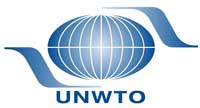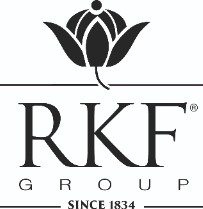
TOURISM SECTOR TO CONTINUE TAKING ACTION ON PLASTIC POLLUTION
A new set of Recommendations published today outline how the global tourism sector can continue in its fight against plastic pollution while effectively facing the public health and hygiene challenges of the COVID-19 pandemic. |
 |
TOURISM SECTOR TO CONTINUE TAKING ACTION ON PLASTIC POLLUTION
A new set of Recommendations published today outline how the global tourism sector can continue in its fight against plastic pollution while effectively facing the public health and hygiene challenges of the COVID-19 pandemic. |
Catégorie : Monde - Économie du secteur
- Développement durable
Ceci est un communiqué de presse sélectionné par notre comité éditorial et mis en ligne gratuitement le 23-07-2020
The ongoing pandemic has hit the tourism sector hard, putting more than 100 million jobs at risk. Now, as countries begin to recover and tourism restarts in a growing number of destinations, the Global Tourism Plastics Initiative, led by the World Tourism Organization (UNWTO), the United Nations Environment Programme (UNEP) and in collaboration with the Ellen MacArthur Foundation, has provided a plan of action for both public and private sector stakeholders to address the root causes of plastic pollution in these challenging times.
The Recommendations for the Tourism Sector to Continue Taking Action on Plastic Pollution During COVID-19 Recovery illustrate how reducing the plastic footprint, increasing the engagement of suppliers, working closer with waste service providers, and ensuring transparency on the actions taken, can significantly contribute to the responsible recovery of the tourism sector.Businesses and governments unitedUNWTO Secretary-General Zurab Pololikashvili said: “As the tourism sector restarts, we have a responsibility to build back better. Not managing the transition into the new reality we are facing, including the strong focus on health and hygiene measures, in a responsible manner may have a significant environmental impact, which is why this renewed commitment is vitally important. We are proud to announce the first signatories to the Global Tourism Plastics Initiative today.”
When not properly disposed of, products such as gloves, masks and sanitiser bottles can end up polluting the natural environments around major tourist destinations.
UNEP Economy Division Director, Ligia Noronha adds: “We need to take a science-based approach and support governments, business, and local communities to ensure we are taking the most effective measures to protect hygiene and health without creating pollution and causing harm to our natural environment. These recommendations addressing hygiene and disposable plastic can support tourism sector stakeholders in their efforts towards a responsible recovery.”Accor, Club Med and Iberostar Group Commit to InitiativeThe recommendations come as major global tourism companies Accor, Club Med, and Iberostar Group cement their commitment to fighting plastic pollution and become three of the first official signatories to the Global Tourism Plastics Initiative, along with more than 20 signatories from across all continents, including major industry players and supporting organisations which will act as multipliers. Alongside these, the World Wide Fund for Nature (WWF) is a member of the Global Tourism Plastics Initiative Advisory Committee and has informed these latest recommendations.
About the Global Tourism Plastics InitiativeThe Global Tourism Plastics Initiative unites the tourism sector behind a common vision to address the root causes of plastic pollution. It enables businesses and governments to take concerted action, leading by example in the shift towards a circularity in the use of plastics. Developed within the framework of the Sustainable Tourism Programme of the One Planet network, a multi-stakeholder partnership to implement SDG 12 on Sustainable Consumption and Production, the Global Tourism Plastics Initiative is led by the United Nations Environment Programme and the World Tourism Organisation, in collaboration with the Ellen MacArthur Foundation.
|
|





